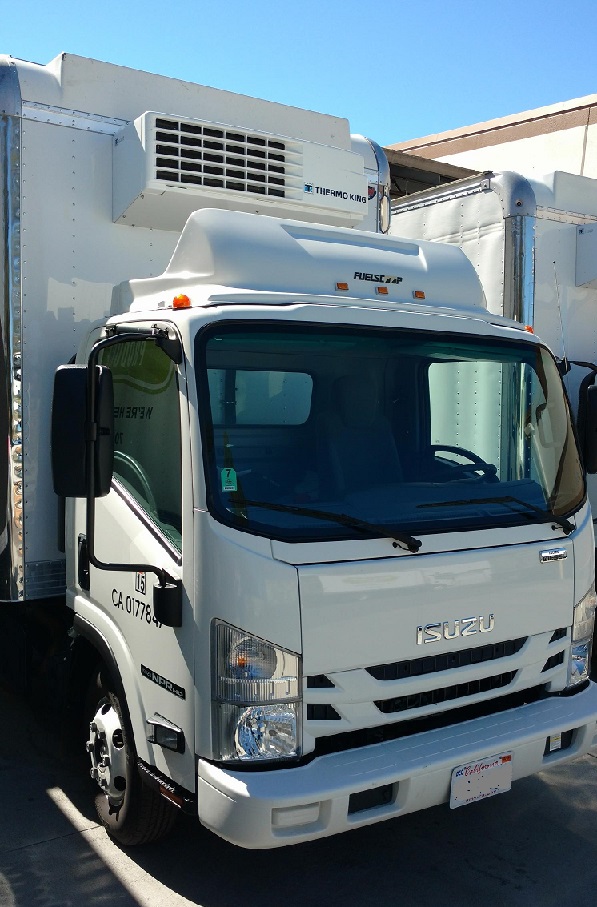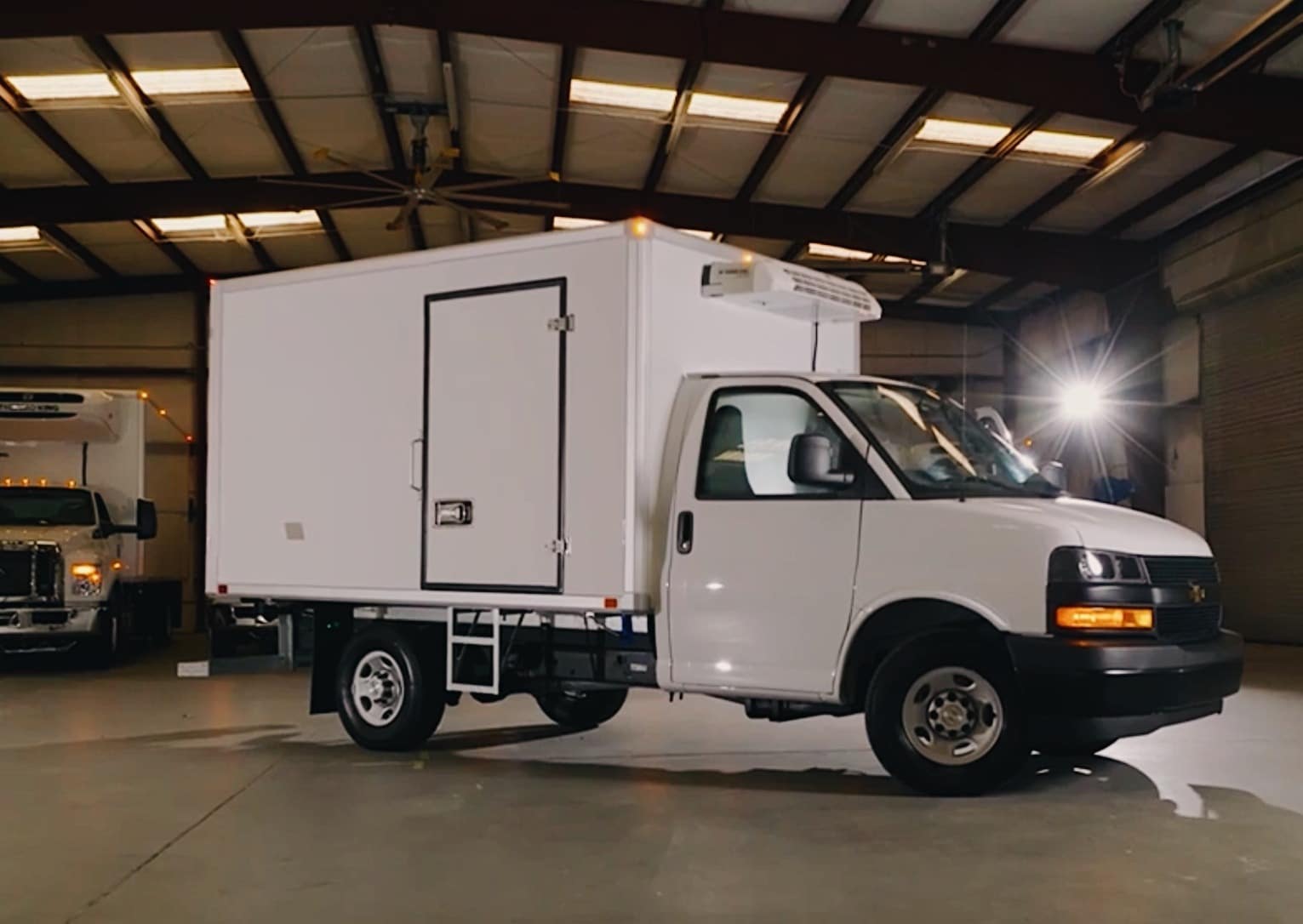Reefer Trucks Thermo King: Relied On for Temperature-Sensitive Item
Reefer Trucks Thermo King: Relied On for Temperature-Sensitive Item
Blog Article
Choosing the Right Transportation Refrigeration System for Your Fleet
Picking an appropriate transport refrigeration system for your fleet is a critical decision that can dramatically influence functional efficiency and product stability. It requires a thorough understanding of your particular refrigeration requirements, consisting of temperature level needs and delivery routines. Numerous system kinds offer distinct advantages, yet selecting the ideal one entails even more than simply technical specs; it likewise includes factors to consider of spending plan and future development. As we discover these crucial factors, it becomes apparent that the effects of this selection expand far beyond first prices and functional capabilities. What might these implications reveal about your fleet's long-term success?
Understanding Your Refrigeration Requirements
When choosing a transportation refrigeration system, comprehending your details refrigeration needs is paramount to guaranteeing product high quality and conformity with sector criteria. Numerous factors have to be considered to identify the most appropriate system for your operation. These include the kind of products being carried, their temperature demands, and the period of transportation.
For subject to spoiling items, such as fresh fruit and vegetables or drugs, specific temperature level control is important. Recognizing the temperature level variety needed for each and every item enables the choice of a system that can preserve those conditions regularly. Additionally, consider the regularity of distributions and the range took a trip; longer trips may demand systems with boosted insulation or backup power options to avoid temperature variations.

In addition, the capacity of the refrigeration system need to align with your tons dimension. Straining a device can result in inadequate air conditioning, while an oversized system may be inefficient and expensive. Lastly, regulative compliance is essential; familiarize on your own with neighborhood and global guidelines governing the transport of temperature-sensitive products. By thoroughly examining these variables, you can make sure that your selected transport refrigeration system efficiently meets your functional needs and maintains product integrity.
Sorts Of Transportation Refrigeration Solution
Choosing the best kind of transportation refrigeration system is vital for making certain the risk-free transit of temperature-sensitive items. There are several systems readily available, each made to satisfy specific demands and applications.
These systems are usually favored for their performance and lower preliminary costs. One more alternative is the main refrigeration system, which offers numerous compartments or lorries from a single compressor system.
In addition, there are self-contained refrigeration devices that combine the compressor and evaporator in one bundle. When room is limited, these systems are suitable for smaller cars or. For specialized applications, such as moving pharmaceuticals or perishables, cryogenic refrigeration systems may be used, using fluid nitrogen or carbon dioxide to preserve ultra-low temperature levels.
Last but not least, hybrid refrigeration systems that integrate diesel and electrical power are coming to be progressively preferred, offering flexibility in energy use and minimizing ecological impact. Understanding these various types enables fleet drivers to make enlightened choices customized to their specific operational needs.
Key Features to Think About
Exactly how can one make sure that a transportation refrigeration system satisfies all functional demands? To accomplish this, numerous crucial attributes have to be carefully evaluated. Temperature control is important; systems need to provide accurate temperature setups to suit different products, ranging from frozen goods to subject to spoiling things.
Power effectiveness is one more important consideration, as it impacts functional expenses. Search for systems that utilize innovative modern technology, such as variable speed compressors, to optimize power usage without compromising efficiency.
One more feature to analyze is the reliability and sturdiness of the equipment. Equipments built from high-quality products and developed for strength against harsh problems will lower upkeep expenses and downtime.
Moreover, the convenience of maintenance and accessibility of elements can significantly affect operational effectiveness (refrigerated transportation thermo king). Functions like modular layouts or remote surveillance capabilities can enhance service processes
Last but not least, compatibility with existing fleet administration software program can enhance tracking and reporting procedures. By focusing on these crucial attributes, fleet drivers can ensure that their transport refrigeration systems not just meet current needs yet also adjust to future demands.

Budgeting for Refrigeration Solutions
Evaluating vital attributes of transportation refrigeration systems is just one part of ensuring functional efficiency; budgeting for refrigeration services is equally vital. A well-structured budget plan not only incorporates the first purchase price yet likewise considers lasting operational costs, consisting of energy consumption, upkeep, and possible repair work needs.
When developing a budget plan, fleet supervisors must first analyze the overall price of ownership (TCO) This includes not just the purchase expenses yet also ongoing expenditures connected to fuel efficiency and the sturdiness of the refrigeration systems. Picking systems with greater energy performance rankings might produce substantial savings in time, reducing in advance costs.
Additionally, fleet drivers ought to represent potential scalability. As services expand, the refrigeration needs might transform, necessitating upgrades or extra systems. Planning for these future costs can protect against financial stress.
Funding options can likewise play a crucial function in budgeting. Leasing, financings, or outright purchases each have distinctive economic implications, and comprehending these can assist in making an educated decision. Ultimately, a detailed spending plan that considers both instant and future demands makes certain that transport refrigeration systems contribute favorably to the total functional efficiency of the fleet.
Maintenance and Support Options
In the realm of transport refrigeration systems, efficient maintenance and assistance choices are essential for ensuring ideal efficiency her response and long life. Normal upkeep is important to prevent breakdowns and maintain the integrity of temperature-sensitive cargo. It is advisable to establish a routine inspection schedule with qualified service technicians who can carry out required checks and repair work on refrigeration systems.
Support options should consist of a durable solution contract, covering both routine maintenance and emergency repairs. This ensures that your fleet has accessibility to motivate help, lessening downtime and preserving operational performance. Several makers provide extensive assistance packages that consist of training for your personnel, enabling them to perform standard troubleshooting and maintenance tasks.
Furthermore, making use of remote surveillance innovation can enhance your upkeep method - reefer trucks thermo king. These systems supply real-time information on temperature level and performance, permitting aggressive steps before problems escalate. Spending in training and innovation not only enhances your fleet's reliability yet likewise expands the life expectancy of your refrigeration systems
Inevitably, a calculated approach to upkeep and support will guard your investment and make certain that your transport refrigeration systems run at peak efficiency, providing consistent results for your organization.

Verdict
To conclude, picking the ideal transportation refrigeration system for a fleet requires a complete examination of certain refrigeration requirements, system types, and essential features. Focusing on functional effectiveness, energy consumption, and upkeep factors to consider is vital for guaranteeing reliability. In addition, mindful budgeting and planning for future content scalability will add to the long-lasting success of the refrigeration technique. Ultimately, an educated choice will boost item integrity and maximize general logistics operations within the fleet.
Picking an appropriate transportation refrigeration system for your fleet is a critical choice that can considerably influence operational performance and product stability.When selecting a transport refrigeration system, recognizing your particular refrigeration needs is extremely important to ensuring item high quality and conformity with industry requirements. By extensively evaluating these aspects, you can ensure that your selected transportation refrigeration system effectively satisfies your operational demands and maintains product stability.
Inevitably, sites an extensive budget plan that takes into consideration both future and instant demands makes certain that transport refrigeration systems contribute favorably to the total functional performance of the fleet.
In conclusion, choosing the proper transportation refrigeration system for a fleet demands a comprehensive examination of certain refrigeration demands, system kinds, and essential features.
Report this page